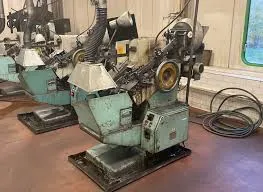
-
 Afrikaans
Afrikaans -
 Albanian
Albanian -
 Amharic
Amharic -
 Arabic
Arabic -
 Armenian
Armenian -
 Azerbaijani
Azerbaijani -
 Basque
Basque -
 Belarusian
Belarusian -
 Bengali
Bengali -
 Bosnian
Bosnian -
 Bulgarian
Bulgarian -
 Catalan
Catalan -
 Cebuano
Cebuano -
 Corsican
Corsican -
 Croatian
Croatian -
 Czech
Czech -
 Danish
Danish -
 Dutch
Dutch -
 English
English -
 Esperanto
Esperanto -
 Estonian
Estonian -
 Finnish
Finnish -
 French
French -
 Frisian
Frisian -
 Galician
Galician -
 Georgian
Georgian -
 German
German -
 Greek
Greek -
 Gujarati
Gujarati -
 Haitian Creole
Haitian Creole -
 hausa
hausa -
 hawaiian
hawaiian -
 Hebrew
Hebrew -
 Hindi
Hindi -
 Miao
Miao -
 Hungarian
Hungarian -
 Icelandic
Icelandic -
 igbo
igbo -
 Indonesian
Indonesian -
 irish
irish -
 Italian
Italian -
 Japanese
Japanese -
 Javanese
Javanese -
 Kannada
Kannada -
 kazakh
kazakh -
 Khmer
Khmer -
 Rwandese
Rwandese -
 Korean
Korean -
 Kurdish
Kurdish -
 Kyrgyz
Kyrgyz -
 Lao
Lao -
 Latin
Latin -
 Latvian
Latvian -
 Lithuanian
Lithuanian -
 Luxembourgish
Luxembourgish -
 Macedonian
Macedonian -
 Malgashi
Malgashi -
 Malay
Malay -
 Malayalam
Malayalam -
 Maltese
Maltese -
 Maori
Maori -
 Marathi
Marathi -
 Mongolian
Mongolian -
 Myanmar
Myanmar -
 Nepali
Nepali -
 Norwegian
Norwegian -
 Norwegian
Norwegian -
 Occitan
Occitan -
 Pashto
Pashto -
 Persian
Persian -
 Polish
Polish -
 Portuguese
Portuguese -
 Punjabi
Punjabi -
 Romanian
Romanian -
 Russian
Russian -
 Samoan
Samoan -
 Scottish Gaelic
Scottish Gaelic -
 Serbian
Serbian -
 Sesotho
Sesotho -
 Shona
Shona -
 Sindhi
Sindhi -
 Sinhala
Sinhala -
 Slovak
Slovak -
 Slovenian
Slovenian -
 Somali
Somali -
 Spanish
Spanish -
 Sundanese
Sundanese -
 Swahili
Swahili -
 Swedish
Swedish -
 Tagalog
Tagalog -
 Tajik
Tajik -
 Tamil
Tamil -
 Tatar
Tatar -
 Telugu
Telugu -
 Thai
Thai -
 Turkish
Turkish -
 Turkmen
Turkmen -
 Ukrainian
Ukrainian -
 Urdu
Urdu -
 Uighur
Uighur -
 Uzbek
Uzbek -
 Vietnamese
Vietnamese -
 Welsh
Welsh -
 Bantu
Bantu -
 Yiddish
Yiddish -
 Yoruba
Yoruba -
 Zulu
Zulu
Innovative Solutions for Precision Thread Rolling Tools Enhancing Custom Manufacturing Processes and Efficiency
Custom Thread Rolling Tools Enhancing Precision and Efficiency in Manufacturing
In the world of manufacturing, precision and efficiency are paramount. As industries strive for higher productivity and improved product quality, the importance of custom tools, specifically thread rolling tools, cannot be overstated. Thread rolling is a cold-forming process used to create threads on a workpiece, and it offers numerous advantages over traditional cutting methods. When tailored to specific applications, custom thread rolling tools can significantly enhance manufacturing outcomes.
The Fundamentals of Thread Rolling
Thread rolling involves the deformation of a material to create external or internal threads. Unlike cutting, which removes material, thread rolling displaces it, leading to a strengthened product with superior surface integrity. This process generates less waste, requires less energy, and typically results in higher production rates.
The tools used for thread rolling consist of rotary dies that compress the workpiece into the desired thread profile. Customization of these tools allows manufacturers to cater to specific threading requirements, whether it’s for bolts, screws, or specialized fasteners used in critical applications.
Advantages of Custom Thread Rolling Tools
1. Tailored Designs for Specific Applications Custom thread rolling tools are designed to meet the unique specifications of a given project. This includes thread pitch, depth, and geometry, ensuring compatibility with the particular materials and load requirements of the application.
2. Improved Performance Custom tools can be engineered to enhance the performance of the thread-rolling process. With precise designs, manufacturers can achieve tighter tolerances and higher accuracy, leading to better fitting parts and reduced need for secondary operations.
custom thread rolling tool

3. Increased Tool Longevity Customized tools can be made from materials and with coatings that enhance durability, thereby prolonging their lifespan. This not only reduces replacement costs but also minimizes downtime associated with tool wear.
4. Cost Efficiency While the initial investment in custom tools may be higher than off-the-shelf solutions, the long-term savings can be substantial. Custom tools often lead to less material waste, decreased cycle times, and minimized labor costs associated with handling and rework.
5. Enhanced Flexibility In an ever-evolving manufacturing landscape, the ability to pivot and adapt is crucial. Custom thread rolling tools can be modified for new designs or changing production requirements, enabling manufacturers to stay competitive and responsive to market demands.
The Design and Development Process
The development of custom thread rolling tools typically involves collaboration between engineers and manufacturers. This process begins with an analysis of the specific application, including the material and production environment. Engineers will then create prototypes using advanced modeling software to simulate the threading process. After rigorous testing and validation, the final tool design is produced, ensuring it meets all performance standards.
Conclusion
Custom thread rolling tools represent a critical investment in the manufacturing sector, balancing precision and efficiency to foster improved product quality. As technological advancements continue to influence production methods, the customization of tools is likely to become even more common. Manufacturers that embrace these tailored solutions will not only benefit from enhanced performance but will also position themselves for future success in a dynamic industry landscape. As the demand for high-quality, precision-engineered components grows, the role of custom thread rolling tools will undoubtedly be integral to meeting these challenges head-on.
